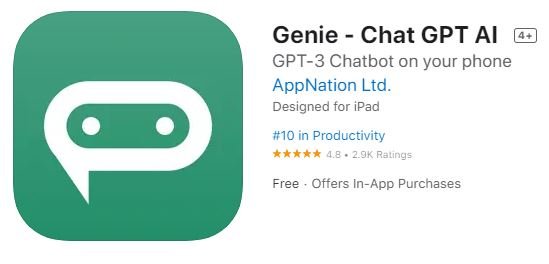
How ChatGPT by OpenAI will transform the future of marketing
Share this Post
No matter how many sci-fi films we’ve watched, or dire warnings from Elon Musk we’ve heard about the dangers of Artificial Intelligence (AI), we were not really prepared for just how good, and popular, the launch of AI-messaging platform ChatGPT by OpenAI has proven to be. In fact, between its official public appearance on 30 November and 4 December 2022, OpenAI estimated that ChatGPT had already had over one million users.
Since launch, people have already trialled ChatGPT to write basic code, build website pages, create social media posts and more so what’s behind this tool that is set to transform the future of marketing as well as many other sectors?
What is ChatGPT?
ChatGPT, which stands for Chat Generative Pre-trained Transformer, is a chatbot developed by OpenAI, an AI research and deployment company based in Silicon Valley, whose mission is to “ensure that artificial general intelligence benefits all of humanity.”
Genie - ChatGPT AI on iOS is available to download on your iphone and puts in your pocket the chance for consumers to ‘get advice, find new connections, chat about the news, or plan for the future.’
This revolutionary AI-powered messaging platform also enables businesses to transform previously stilted conversations with bots and automated personal assistants into free-flowing, natural and useful conversations with their customers.
It’s available in three tiers:
Lite - unlimited Q&A; advanced GPT-3 Model (Curie); 250 word limit for answers - £6.99 per/week; £69.999 per/year.
Pro - unlimited Q&A; most advanced GPT-3 Model (DaVinci); 500 word limit for answers -£ 9.99 per/week or £99.99 per/year.
Advanced - unlimited Q&A; most advanced GPT-3 Model (DaVinci); Dialogs (AI remembers chat history); 500 word limit for answers £19.99 per/week or £149.99 per/year.
For enterprise users, the company is offering $18 in free credit to experiment with during the first three months, then moves on to a pay-as-you-go model across a spectrum of capabilities and price points.

ChatGPT for marketers
Since launch, people have already trialled ChatGPT to write basic code, build website pages and create social media posts.
Here are a few more ways that ChatGPT could transform marketing:
Customer service and support - personalised responses in real-time that are more relevant and insightful.
Content creation - generating ideas and even writing the full article or piece of content across any topic or theme.
Advertising copy - use its understanding of language, target audience and media channel to create the ‘perfect’ ad.
The potential is huge, but where does that leave marketers? Best case scenario, it frees up time and energy to leave marketers to devise strategies and build relationships with their current and potential clients. Worst case? Clients buy into Chat GPT directly, cutting budgets and eliminating a swathe of marketing heads.
One thing is for sure, marketers are going to have to learn to use these new AI-tools or risk being left as far behind as newspaper executives who resisted going from hot metal to digital production!
Canva’s Magic Write
As for integrating this new technology into existing businesses, graphic design platform giant Canva, which had 75 million active users in 2021, has embedded the AI tech into its new Canva Docs service and dubbed the writing assistant ‘Magic Write'.
Users can easily type in a prompt for documents, either generating different templates or even asking the tech to come up with ideas and complete text.
“Our vision for Canva Docs is to reimagine not only what documents can look like, but to also inject a little magic to kickstart the creative process. We know staring at a blank page can be daunting, so we’re here to help,” Canva co-founder and chief product officer Cameron Adams wrote.
“Simply tell Magic Write what’s on your mind and it’ll create the starting point for you. Type what you’re looking for and watch as a strategy document, meeting agenda or marketing brief appears on the page, letting you move from a spark of an idea to final edit in seconds.”
Who is behind Chat GPT?
OpenAI is governed by the board of the OpenAI nonprofit, comprised of OpenAI LP employees Greg Brockman (Chairman & President), Ilya Sutskever (Chief Scientist), and Sam Altman (CEO), and non-employees Adam D’Angelo, Reid Hoffman, Will Hurd, Tasha McCauley, Helen Toner, and Shivon Zilis.
OpenAI’s investors include Microsoft, Reid Hoffman’s, co-founder of LinkedIn’s charitable foundation, and Khosla Ventures.
OpenAI is also the creator of DALL·E 2 and Whisper.
How does ChatGPT work?
ChatGPT is built on top of OpenAI's large language models, and is fine-tuned with both supervised and reinforcement learning. Both approaches use human trainers to improve the model's performance. In the case of supervised learning, the model was provided with conversations in which the trainers played both sides - the user and the AI assistant.
In the reinforcement step, human trainers first ranked responses that the model had created in a previous conversation.
Unlike most chatbots, ChatGPT is ‘stateful’ which means it can retain information about different sessions and can react to the same input differently, depending on the current state, making it seem super-responsive and relevant.
Potentially offensive outputs are apparently prevented from being produced from ChatGPT by filtering queries through a moderation API, and potentially racist or sexist prompts are rejected.
This is a truly revolutionary and exciting technology. No doubt, there will be drawbacks to such a technology, but as co-founder Sam Altman said recently, Chat GPT is just one driver in the AI revolution.

